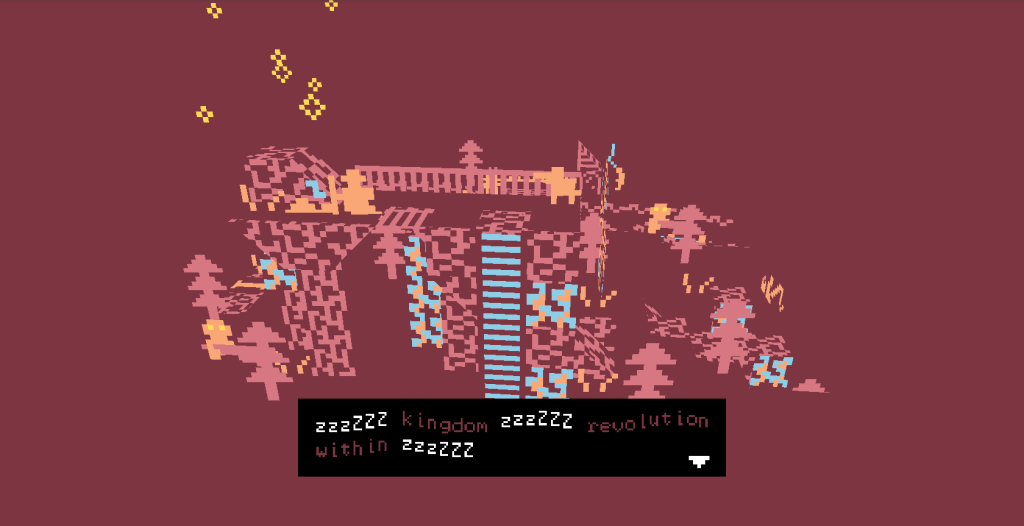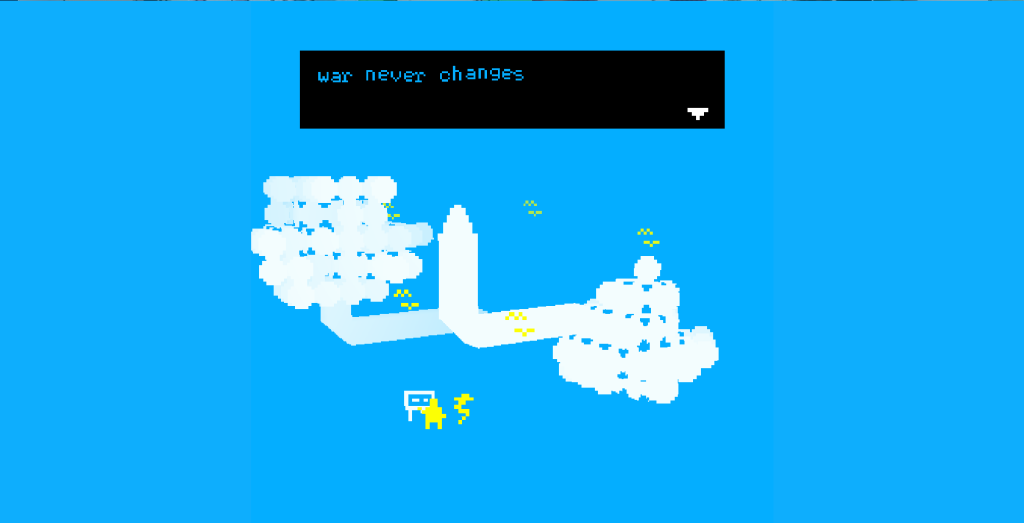
Rusty Blade is a narrative game with a strong focus on story and visuals. The games of the developer that I played attempt to explore the boundary between image, text, and video game (often with some philosophical hook attached) – but they are quite active in various fields, so I recommend to check out their site. Their games don’t offer much gameplay – rather, think of them as interactive images. The controls feel a bit quirky, but dealing with them is worth it – your patience will be rewarded by great aesthetics and well shaped out contents.
Rusty Blade is about an old adventurer, a witch within an RPG, trying to reach the maximum level. You can wander through a city and its periphery, meet NPCs and find objects, but your agenda is always strongly limited by the game itself – that you’ll eventually destroy by completing it. The violence inherent to the concept of RPGs is addressed, but as far as I can tell there is no way to evade it other than by not playing the game. This is a issue that I struggle myself to deal with, especially when it comes to pen and paper role playing games – one could argue that there are many attempts to create non violent or critical RPGs, but all those attempts come with problems of their own – be it that they merely replace the „fighting“ part with substitutes that carry the logic of destruction onto another layer, that they miss the tension that creates attraction for the player, or that they sideslip into being kitsch. Rusty Blade evades this problems by not being an RPG at all; rather it emulates the image of an RPG by using the associated codes. The question if there is a way for salvation within the genre remains unanswered.

Hoch_Tief, released a year earlier, is even more short and pointed – but extends the question if there is hope for a non violent reality to a even more fundamental direction. Two pressure zones attack each other; you, the player is stuck with the status quo – unable to leave, but also unable to take effect in any way; you can walk around, talk about the problem, but nothing that you do will bring change in a positive sense. Two years have passed since the release of this game, and in the country the developer and the author of these review comes from pacifism was widely ousted from the acceptable public opinion – instead the shipping and production of arms is projected as a possible way of peace, and spaces for art must were destroyed to make room for propaganda. The pacifist and anti militarist movement stands dazzled, fractured and unable to take effect in this situation, and no light is visible at the horizon as of today – positions and ideals that we thought were common sense for all of us were abandoned over night, at least at those places were decisions are done – is this indeed inherent to our nature?
The games of Kai Werder provide questions, and at the utmost point towards an answer; their attempting to use the limitations of the medium rather than trying to emphasize its latitudes to make a point might not be unique, but is rarely implemented in such a elegant way.
I managed to run all of their games on OpenSuse Tumbleweed, either by browser or by using Wine.
Schreibe einen Kommentar